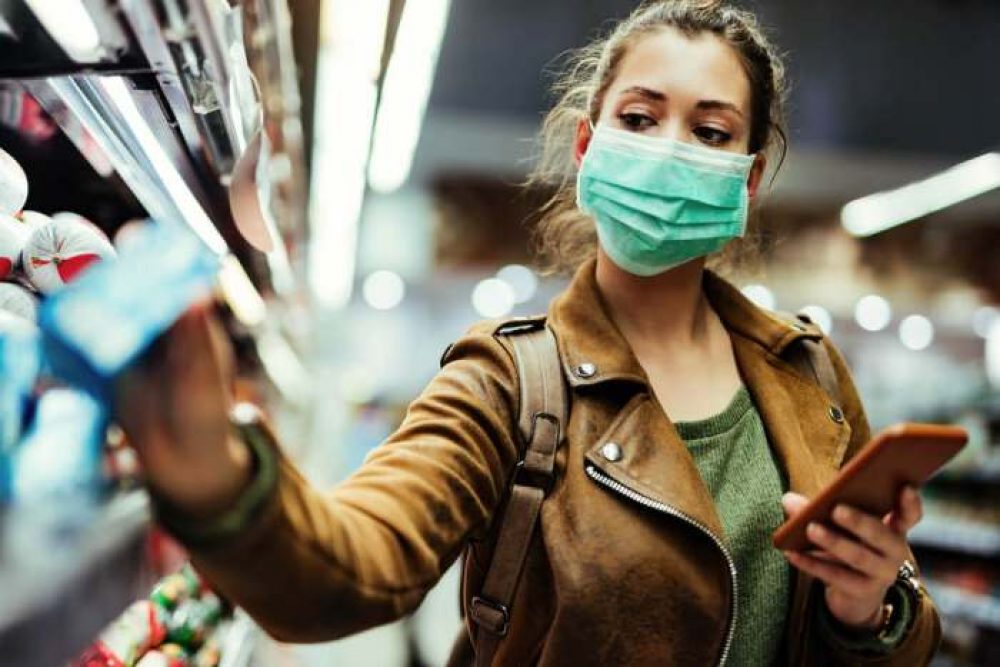
Since statewide COVID-19 hospitalization rates are declining faster than any other time in the pandemic, Illinois could lift the statewide indoor mask requirement on February 28th, 2022.
More than 21.4 Million Doses of the COVID-19 Vaccine Administered to Illinois Residents
On February 9th, the Illinois Department of Public Health (IDPH) reported 4,742 new confirmed and probable cases and 2,496 people in the hospital with COVID-19. IDPH also reported 449 people with COVID-19 in the ICU and 243 people on ventilators. With 20% of ICU beds available statewide, that day marked the fastest rate of decline in the hospital metrics from the start of the pandemic.
The state reached this point with more than 21.4 million doses of the COVID-19 vaccine administered to Illinois residents. Per the CDC, Illinois still leads the Midwest in number of people to have received at least one shot, with 75.7% of people having received their first dose. Illinois also has the most fully vaccinated 17-and-under population in the region, though across the nation, youth vaccination rates continue to trail adult rates.
“We are now seeing the fastest rate of decline in our COVID-19 hospitalization metrics since the pandemic began. If these trends continue — and we expect them to —then on Monday, February 28th, we will lift the indoor mask requirement for the State of Illinois,” said Governor JB Pritzker. “I want to be clear: Many local jurisdictions, businesses and organizations have their own mask requirements and other mitigations that must be respected. Throughout this pandemic, we’ve deployed the tools available to us as needed. Our approach has saved lives and kept our economy open and growing.”
We Have Been Wearing Masks Again Everywhere since August 4th, 2021
Illinois returned to a statewide indoor mask requirement on August 30, 2021, as ICU bed availability in certain regions of the state dropped into the low single digits. Illinois required masks in all P-12 schools and daycares on August 4, 2021, following the strong recommendation of the CDC.
Now, news is finally becoming better on the pandemic front in Illinois.
“Preparing to repeal statewide masking mandates at the end of the month is aggressive and optimistic but reasonable,” said Dr. Emily Landon, University of Chicago Medicine, Executive Medical Director of Infection Prevention and Control. “Broad mandates are not about individuals. They are put in place to help protect communities, businesses, and healthcare access. Repealing the mask mandate allows people to choose the mitigation layers that are best for them and I have no doubt that many should and will choose to keep mask rules.”
Some Mask Requirements Will Still Remain in Place
Mask requirements will continue where federally mandated, such as on public transit and in high-risk settings including healthcare facilities and congregate care. As the CDC reaffirmed on February 9th, masks remain a critical tool to keep schools safe and open. Illinoisans can resume activities without wearing a mask indoors on February 28th except where required by federal, state, local, tribal, or territorial laws, rules, and regulations, including local business and workplace guidance.
According to federal requirements which remain in effect through at least March 18, masks will still be required in:
- Schools.
- Day cares – Department of Children and Family Services (DCFS) guidelines
- Health care facilities.
- Congregate care facilities.
- Public transportation, including buses, trains and airplanes – federal guidelines.
- Federal buildings in areas of high or substantial risk of transmission.
- Long-term care facilities when in communal areas.
- In businesses that require mask use.
- When in municipalities, like cities or counties, that have mask mandates.
Students Will Continue to Wear Masks in Schools, Given the High Risk of Transmissibility
Since schools need more time for community infection rates to drop, for young children to become vaccine eligible, and for more parents to have their kids vaccinated, masks will continue to be required in P-12 school settings.
Nationally, 23% of 5- to 11-year-olds and 56% of 12- to 17-year-olds are fully vaccinated, compared to 71% of 18-to-64-year-olds and 89 percent of those 65 and up. This disparity leaves schools at far greater risk of significant outbreaks than the general population. Additionally, school environments can include younger children who aren’t yet vaccine-eligible.
“Continuing to protect children and reduce spread in schools and congregate care settings while cautiously phasing out mask requirements in public spaces as case rates decline and hospital capacity increases, is a commonsense, science-based approach,” said Dr. Seth Trueger, a Northwestern emergency physician who is also immunocompromised. “Masking has helped slow the spread even in the face of omicron’s transmissibility. We can and must use this time to further increase vaccination uptake & outreach, especially among children and other populations with low vaccination rates, so when the next wave comes, we will be even better prepared.”
Pandemic Relief for Businesses and Efforts to Further Vaccination Continue
To help businesses recover from the pandemic, the Governor in partnership with the General Assembly, has awarded nearly $1 billion in grants to more than 12,000 small businesses across every sector of the Illinois economy. As a result, tens of thousands of Illinois residents have been able to keep their jobs.
“Governor Pritzker continues to use a data-based approach to keeping Illinoisans safe and growing our Illinois economy,” said Acting DCEO Director Sylvia I. Garcia. “This policy strikes the right balance for businesses, communities and individuals across our state.”
According to the CDC, individuals should continue to use and layer prevention strategies. All Illinois residents over the age of 5 are eligible to receive the COVID-19 vaccine at no cost and proof of immigration status is not required to receive the vaccine. To find a vaccination center near you, visit vaccines.gov.
The FDA’s Vaccines and Related Biological Products Advisory Committee will meet to discuss authorizing the Pfizer-BioNTech COVID-19 mRNA vaccine for administration to children 6 months through 4 years of age on February 15th. The request for authorization will also be reviewed by the Advisory Committee on Immunization Practices (ACIP) and the CDC.









